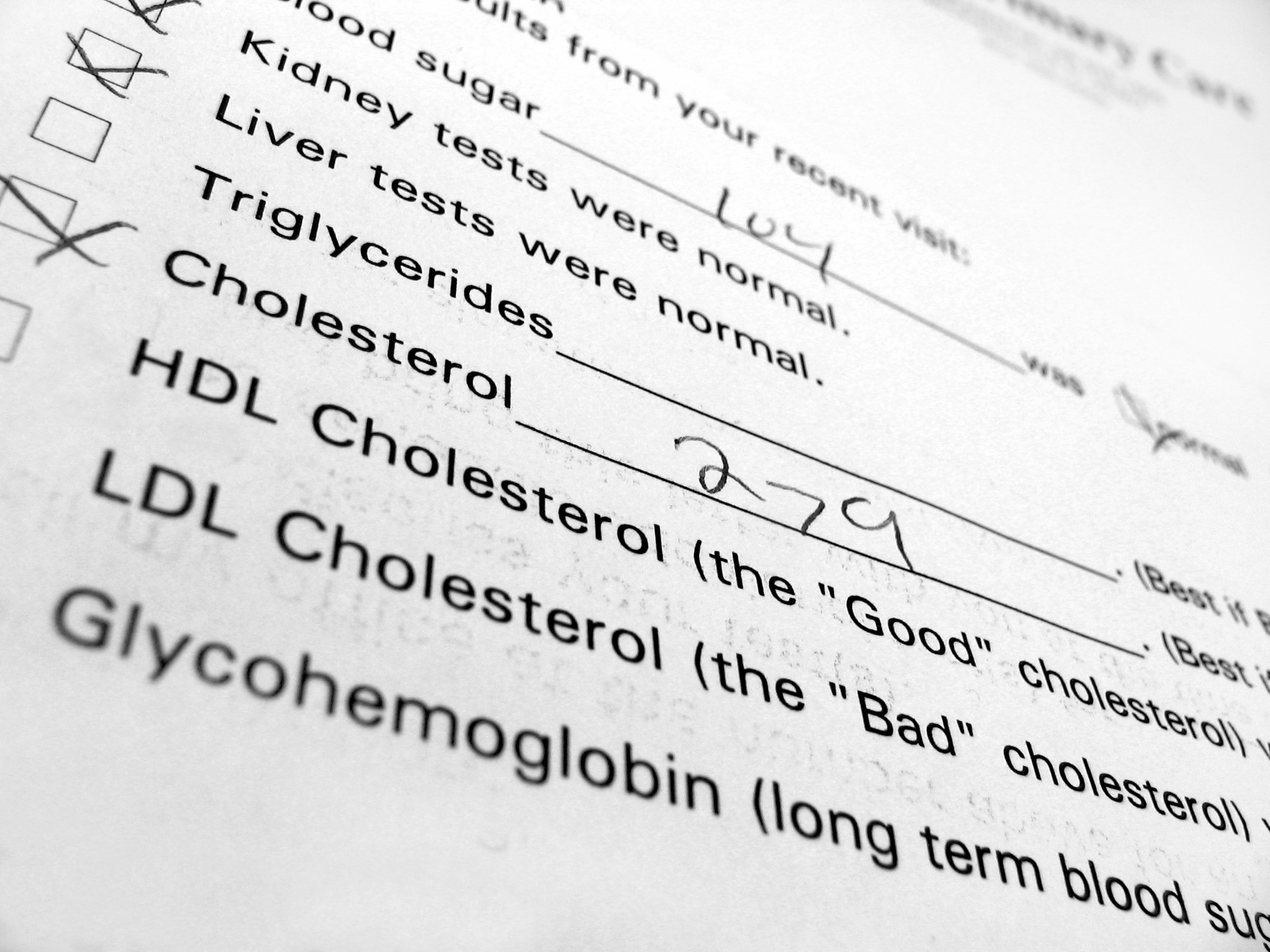
Most of us know that too much cholesterol in the blood can bring on dangerous clots that lead to heart attacks and stroke. And recent studies show that the build up of these fats in the blood vessels doesn’t happen overnight — it takes years of gradual deposits to narrow a vessel. So in 2013, when heart experts expanded the criteria for who over the age of 60 should consider taking cholesterol-lowering statins, Michael Pencina, a professor of biostatistics at the Duke University Clinical Research Institute, began wondering about those, including himself, who were younger. How long should they wait before taking the drugs?
In the latest study of healthy people who were followed for about 15 years on average, researchers report Monday in the journal Circulation that having even mildly elevated cholesterol levels can increase risk of having later heart problems by as much as 40%.
The researchers argue that having high cholesterol for many years—even if it starts when you’re young—should be a new risk factor that doctors and patients consider when discussing their risk of heart disease.
Even people with moderately high levels of lipids, who might not qualify for treatment for high cholesterol levels, could be at higher risk of heart attacks later in life simply because they harbor these elevated lipid levels for a long period of time.
MORE: Should I Take a Statin? What You Need to Know About the New Cholesterol Guidelines
Among a group of 1,478 people aged 55 years old from the Framingham Heart Study’s Offspring Cohort, those who had higher cholesterol levels for 11 to 20 years (beginning when they were about 35 years old) had a 16.5% higher risk of having a heart attack about 15 years later, compared to a 4.4% risk for those whose cholesterol levels never veered beyond the normal range during middle age. That’s an almost fourfold greater risk, and one that Pencina and his colleagues argue might be reason enough to be more aggressive in discussing ways to lower cholesterol with these patients so they can reduce their risk of heart trouble later on.
MORE: New Cholesterol Guidelines May Put 13 Million More on Statin Drugs
“We identified a patient population whom the guidelines might miss,” he says. It’s another dimension of cardiovascular health that needs to be looked at, and yes, I would say that it should be considered a risk factor.” In the study, the researchers considered LDL levels above 130 mg/dL as elevated, which falls into line with previous professional heart organization criteria.
But he stresses that this factor won’t fall easily into a threshold below which patients won’t need to worry about their cholesterol and above which they will. “There are so many components like family history and other factors that go into the decision of what kind of intervention people may need, such as lifestyle, diet or pharmacologic,” says Pencina. “But if you are measuring your cholesterol, even if it’s fine at an early age, it lets you build that history.”
More Must-Reads From TIME
- The 100 Most Influential People of 2024
- Coco Gauff Is Playing for Herself Now
- Scenes From Pro-Palestinian Encampments Across U.S. Universities
- 6 Compliments That Land Every Time
- If You're Dating Right Now , You're Brave: Column
- The AI That Could Heal a Divided Internet
- Fallout Is a Brilliant Model for the Future of Video Game Adaptations
- Want Weekly Recs on What to Watch, Read, and More? Sign Up for Worth Your Time
Contact us at letters@time.com